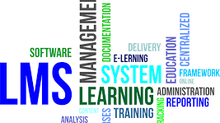Creating effective knowledge checks for your eLearning
- Dylan Hedges
- Sep 28, 2020
- 2 min read
When designing and developing eLearning and digital training knowledge checks are one of the most important things you can implement. A knowledge check is a question or set of questions that tests the learner on a subject and helps reinforce what they have learned. Typical examples of knowledge checks include multiple choice, multiple selection or drag and drop questions.
Knowledge checks can be an effective way to help learners retain information, however there are some things you should consider.
1. Difficultly
When creating knowledge checks you want to make sure that the question and the answers you use are not too difficult or too easy. This can be tricky as it is a balancing act between testing the learner on the learning content and not making the questions so difficult that learners are unable to answer them. For example, If you make a question too easy learners could just use process of elimination to easily remove incorrect answers which removes the challenge of having learners to think about what they have just learned. On the other side of this, if the questions are too difficult learners may skip them or make a guess which again prevents learners thinking about what they have learned. When creating knowledge checks try to think about the key things you want the learners to understand and test them accordingly.
2. Doesn’t match content
Another thing you should consider when developing knowledge checks is that it tests the learner on the content they are learning. This may be obvious, however this can be tricky depending on the size of your eLearning course. For example if you have a large eLearning course it can be easy to include topics and information that was not covered in the course. When creating knowledge checks always ensure that it only tests the learner on the content in the course. In some cases you may have advanced level courses which build on previous knowledge, this is fine, however you need to be sure that the learners do have that prior knowledge of the subject. When developing your eLearning course try to think about what you want to test the learner on, if you see important topics note them down as a potential knowledge check question.
3. Question is not clear
Making sure that your question is clear and uses good language is important when developing knowledge checks for your eLearning. As learners are take eLearning and digital training online there is a high chance they will be doing it independently. As a result, this means learners will most likely have no one to ask questions if they get stuck or need help. When developing your questions always ensure that the questions are clear, relevant and to the point. If your question is poorly worded, has bad grammar or incorrect information it can cause a lot of confusion for the learner as it will be difficult for them to tell if the question is incorrect or if they have a gap in their knowledge. Always ensure when developing knowledge checks you have them proofread in advance.
#customeLearningdevelopment #eLearningcustomdevelopmentsolutions #torontoelearningcompany #customelearningandtraining #elearningvendortoronto #customelearning #trainingcompanytoronto #torontoelearning #elearning #toronto #elearningcompany #elearningvendor #torontoelearningvendor































Comments